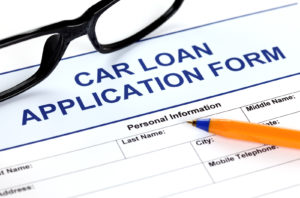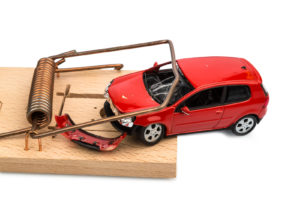
If you have a vehicle that you have financed through a credit union, odds are good that the loan is cross-collateralized with other unsecured loans or credit cards with the same institution.
When I was in law school, my legal writing professor was a strong proponent of getting away from archaic legal terminology or “lawyerisms” and instead using simple words that the general population, namely our non-lawyer clients, can understand. Unfortunately, some of these words are still around and are prevalent in bankruptcy. If you have filed a bankruptcy in Michigan, or other parts of the country where many people bank with credit unions, you might hear the term “cross-collateralization” being tossed around between your attorney and the lawyer representing your credit union. It’s a mouthful of a word that basically means that if you have a secured loan, such as a car loan and also have what would typically be considered an unsecured debt such as a credit card or signature line of credit with the same institution, they all become secured with the car. Basically that collateral for one loan will be used for all loans with the same institution. Primarily due to the fact that people are members of a credit union, the rules which govern them are sometimes different than your typical banking institution. Cross collateralization agreements often state that all of your loans, lines of credit, credit cards and your checking and savings accounts are intertwined and connected allowing the credit union to dip into your checking account and take money out to off-set a payment due on a delinquent debt or not release a lien on a loan that the consumer feels is paid off.

The consequences of a cross-collateralization agreement associated with a car loan can have important ramifications during your bankruptcy.
Most people understand how a typical automobile financing works. You sign a contract called a financing agreement in which you agree to make payments for a set number of months and agree to pledge the vehicle as collateral for the debt. If you fail to make the payments, the creditor can take action to repossess the vehicle and sell it at an auction, with you being liable for the difference between the amount of money the creditor gets at the auction and the remaining balance of the loan. If you make all of your payments pursuant to the terms of the contract, the lender is required to sign off on the title or otherwise discharge their lien on the collateral. What most people who have financed a vehicle through a credit union do not realize is that when they signed the security agreement with the credit union to finance their vehicle, they also most likely signed a cross-collateralization agreement in which they agreed that any other unsecured debts that they have now or will have in the future are also secured with that same vehicle. This means that a credit card, overdraft protection on a checking account or other normally unsecured signature line of credit is now also secured with the same vehicle. Many people who bank with credit unions are often surprised when they believe that their car is paid for and wish to sell it or trade it in only to be told by the credit union that they still owe $5000 on it because the credit card is also attached to the car.
How are Cross-Collateralized Loans handled in Bankruptcy?
So how does this impact a person who has filed a Chapter 7 bankruptcy petition in Michigan? Because my clients typically are unsure or unaware as to whether or not they signed a cross-collateralization agreement when they financed their vehicle (or boat, motorcycle, recreational vehicle, but rarely real estate) with their credit union, we usually find out after the bankruptcy case is filed whether or not such an instrument was signed. Despite the fact that a cross collateralization agreement was most likely signed, I often find that my clients love their credit union and wish to reaffirm or keep all of their loans and lines of credit and maintain their relationship with the credit union and not cause them a loss in bankruptcy. They typically have a long standing relationship with the credit union and personally know many of the employees there and feel a personal attachment to them. As the attorney representing my clients who come to me for debt relief, I basically give my clients the best advice available and analyze each bankruptcy on a case by case basis and will usually try to advise against staying with a credit union if it means having to sign a reaffirmation agreement keeping a sizable amount of unsecured debt that would otherwise be subject to the Discharge Order in bankruptcy. Should a client have a cross-collateralized vehicle loan, a determination must be made after considering all factors, as to whether or not it’s worth reaffirming all of the debt associated with the account, which means all of the debt will survive the bankruptcy or surrendering the collateral (giving it back to the creditor). The analysis basically hinges on what the present fair market value of the vehicle is versus what is owed on all of the debt attached to it. If it turns out that the amount the credit union would require to be reaffirmed exceeds the value of the vehicle, my advice to my client is generally to consider surrendering the collateral. The decision is ultimately up to my client. As stated before, many of my clients feel a loyalty to their credit unions and wish to reaffirm all of the debts with them. There is some benefit to keeping a relationship with a credit union after bankruptcy as you will retain your membership privileges and the credit union may very well be a good way to reestablish your credit after your bankruptcy. The credit union is not likely to hold the bankruptcy filing against you if you apply for new credit but will treat you like any other member and simply look at your current debt to income ratio and other financial factors. As an experienced Michigan bankruptcy attorney, I often will negotiate more favorable terms with the attorneys who represent the credit unions and depending on the circumstances surrounding the debt and the value of the collateral will attempt to lower the interest rate or even reach an agreement whereby the cross collateralization agreement is deemed void.




